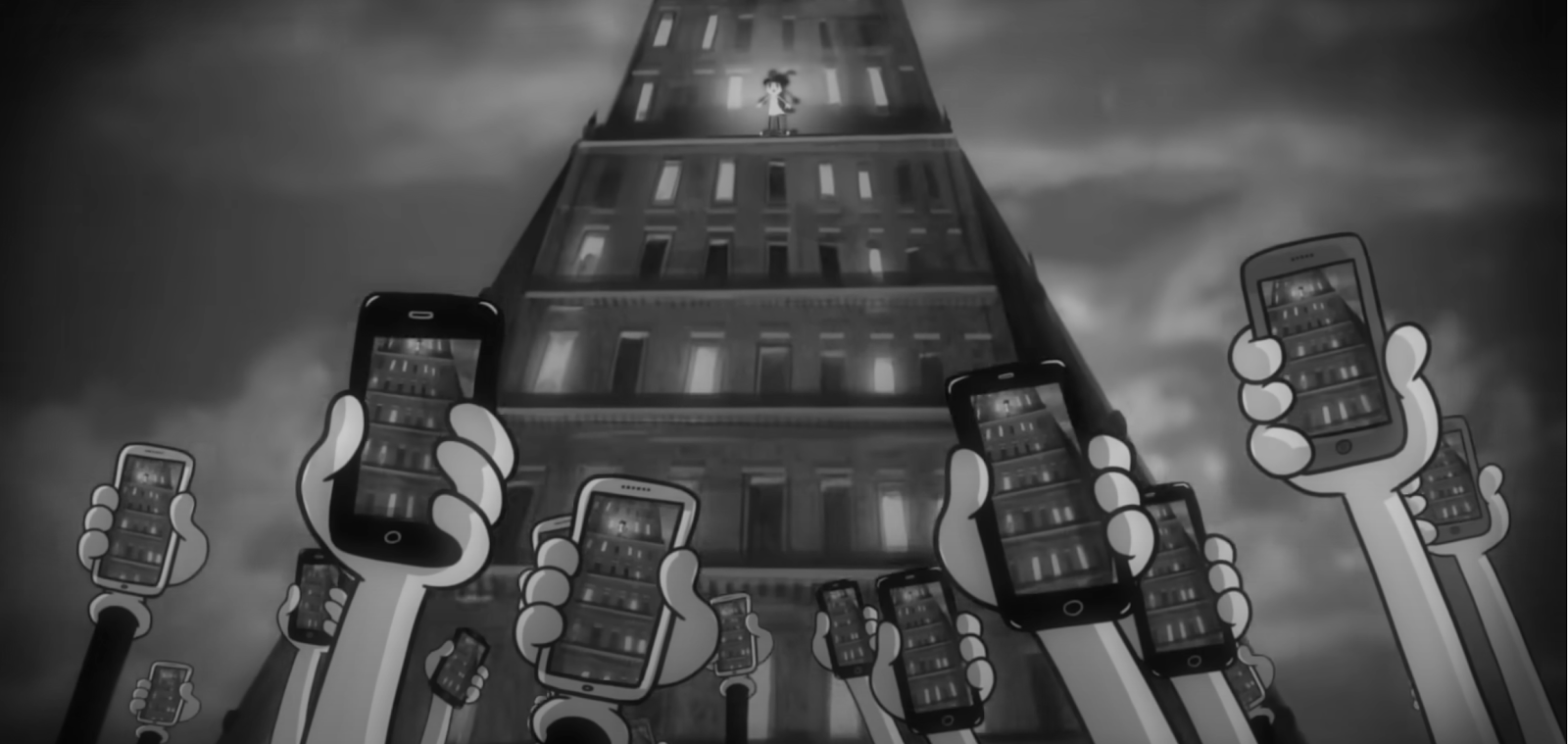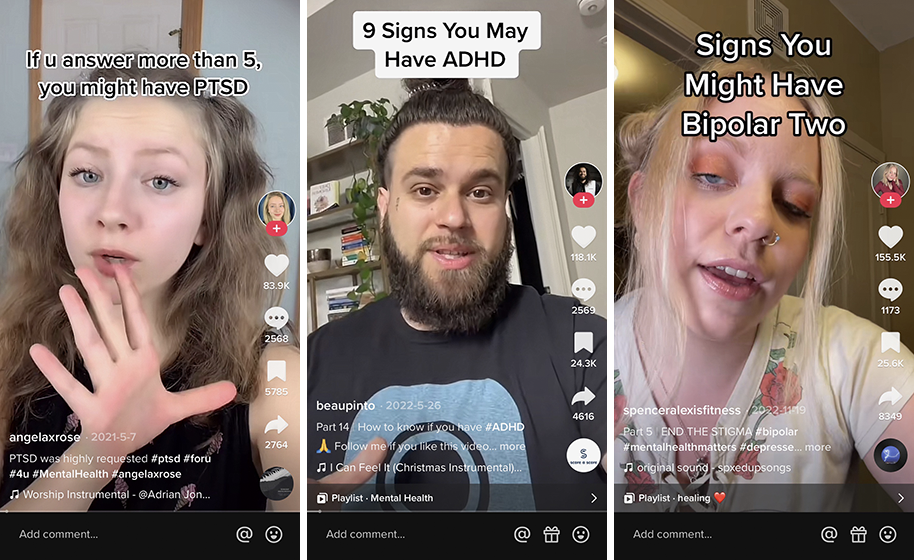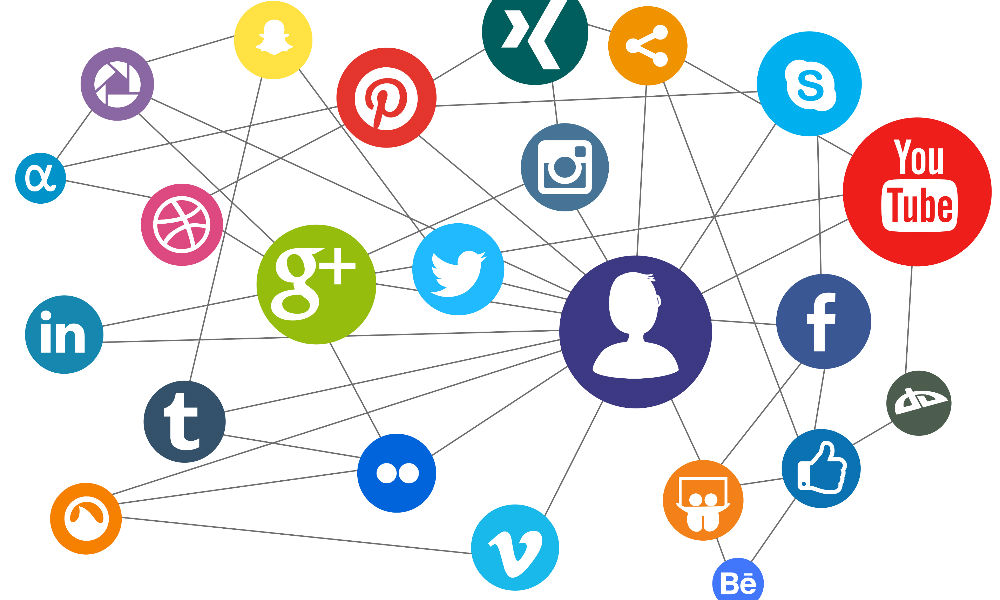A few videos relate to this idea of how technology has consumed our world. First, NY Worlds Fair FUTURAMA Ride Video, did an amazing job at predicting advancements in our world including space travel, weather forecasting, urban living, and more. This was a ride from 1964 so it's quite interesting seeing how our world has changed immensely over time representing a techno-utopian society.
While the growth of technology has been very beneficial for our society, with that comes a lot of negative effects. For starters, the video Mad World was a huge reality shock. While the video is over-exaggerated, it is scary to think that that is how our world could become the more technology is implemented into our daily lives.
One aspect of the video that really stood out to me in an unsettling way was when the girl was standing on the side of the building and everyone was just recording her rather than helping. This video made me think of how the increase in technology has affected mental health. Specifically the impacts of social media on mental health.
A research study done on American teenagers ages 12-15 showed that the teens who used social media for over three hours a day faced twice the risk of having mental health symptoms such as anxiety and depression. Other studies show higher concern in female teenagers who experience cyberbullying-related depression, eating disorders, body image issues, and poor sleep linked to social media use.
Dr.Linda Mayes, Arnold Gesell Professor of Child Psychiatry, Pediatrics, and Psychology and Director of the Yale Child Study Center brought up an interesting point that social media algorithms show you what you seem interested in.
Therefore, if a teen searches for any type of mental health condition such as suicide or depression, it is going to feed them information about those types of things. Then these individuals begin to think that everyone around them is depressed or thinking about suicide which isn't good for mental health either.
A prime example of this that I see all the time is social media algorithms mainly on TikTok but also on Instagram, Facebook, and other social media sites. When scrolling on TikTok and you see a video where someone is talking about having anxiety or depression for instance and you like the post, you're going to get a lot more of that type of content pop up on your feed.Like Dr.Mayes said, the more you see it the more you think everyone around you is experiencing it which is not necessarily true. I think the increase in mental health talk and openness to hear other's problems is amazing however I think for young individuals it can be confusing and misleading.


























